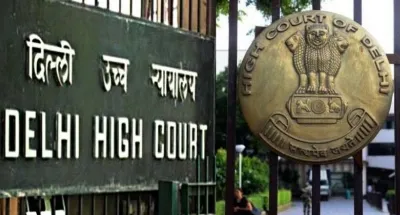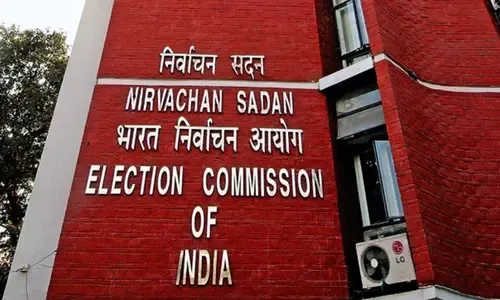Delhi HC Directs DU to Update Student Attendance Monthly

Synopsis
Key Takeaways
- Delhi University must notify student attendance monthly.
- Attendance records to include detailed subject-wise data.
- Monthly updates to be sent via email, SMS, and WhatsApp.
- Students can appeal for attendance shortages.
- Online class attendance mechanisms may be developed.
New Delhi, Feb 12 (NationPress) The Delhi High Court has mandated the Delhi University (DU) to publicly display the monthly attendance records of each student on its notice board. This display should include detailed information about the lectures and practicals conducted, along with the attendance numbers for each subject.
The court emphasized that the university must also send out monthly attendance notifications through email, SMS, and WhatsApp to the students, while keeping a record of these communications.
A bench led by Justice Dinesh Kumar Sharma highlighted that this requirement for monthly attendance updates hinges on the assumption that students provided their mobile numbers and email addresses during admission. In cases of any changes or if such information was not provided initially, the university is expected to take corrective action within a month.
The bench recommended that the Dean of the law faculty, in consultation with the Bar Council of India (BCI), should devise a system allowing students to appeal regarding attendance shortages. If these appeals are deemed valid, appropriate decisions can be made by the authorities.
Moreover, it was suggested that the University of Delhi and the Bar Council of India work together to create a framework enabling students to attend classes online, with necessary precautions and guidelines. Although the court acknowledged the importance of physical attendance in professional courses, it recognized the advancements in technology and Artificial Intelligence that could facilitate effective remote learning.
This ruling came as the Delhi High Court addressed a series of petitions from law students who were denied admit cards for semester examinations due to insufficient attendance.
The petitioners sought intervention to issue admit cards and permit them to take the semester exams, scheduled for January 7, 2025. Their grievances included delayed section allocations, administrative mismanagement, a lack of teaching staff, and the inability to attend classes due to valuable internship opportunities, among other issues.
In its response, Delhi University stated that the petitioners failed to meet the required 70 percent attendance threshold and that there is no provision for relaxation as per BCI regulations. The university further noted that attendance records are displayed monthly on the notice board throughout the academic year, and any delays in examinations can adversely affect subsequent semesters.
In its ruling, the bench led by Justice Sharma noted that the powers granted under Article 226 should not serve as a means to grant relief in instances of clear disciplinary violations by students. Granting such relief would compromise the integrity of professional courses and disadvantage students who responsibly meet their academic obligations.
Ultimately, the court dismissed the petitions, stating that earlier provisional orders related to connected writ petitions did not delve into the substantive issues of the case.










